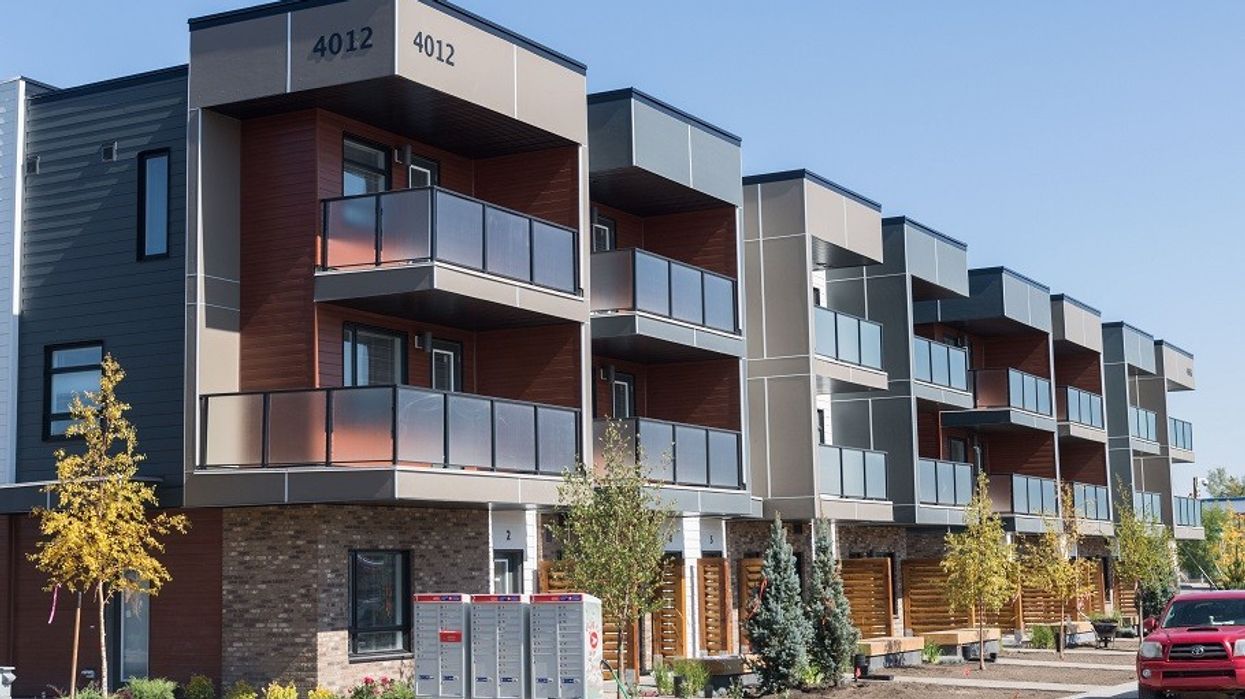On Wednesday the Government of Alberta announced that it was investing $55M towards a new Affordable Housing Partnership Program, in an attempt to help Albertans receive the type of housing they need and ensure that it is affordable.
The program's $55M in funding will be distributed across three years, with the application period now open for those in the public, private, and non-profit sectors that want to "work together to build and deliver affordable housing for seniors, families, individuals with low incomes, developmental disabilities, physical challenges, victims of violence, and others," the government said.
Projects that are potentially eligible for the program include new constructions; redevelopments involving demolition and then new construction (that result in a minimum of five net new affordable housing units); additions or renovations of existing buildings (that result in a minimum of five net new affordable housing units); and adaptive reuse projects where non-rental housing would be converted.
Projects have to either be mixed-use developments, mixed-income housing, specialized housing, or a mixture of strata plus rental or social housing units.
Eligible projects will be able to receive up to a third of the total project cost, and the funding may be in the form of capital grants, but also land or buildings, or even the transfer or long-term lease of a government-owned asset.
Costs that are eligible include those associated with land acquisition; permits, rezoning, and redevelopment; architectural consulting fees; construction material and labour; purchasing and renovating existing units for conversion; demolition for reconstruction; appraisal; geotechnical testing; building condition assessments; site improvements such as landscaping; as well as insurance and bonding.
Applications will be assessed based on the needs of the local community and how well the proposed project can meet those needs, as well as the value for taxpayer dollars. The deadline for applications is Wednesday, January 11.
"Our government is committed to ensuring that affordable housing is accessible across the province," Minister of Seniors, Community, and Social Services Jeremy Nixon said on Wednesday. "By partnering with housing providers, non-profit organizations, municipalities and private companies, I am confident that we will be able to address the needs of Albertans." Nixon was given the housing portfolio after Premier Danielle Smith decided against having a standalone housing minister.
RELATED: BC to Create Standalone Housing Ministry, After Alberta Axes Theirs
Stronger Foundations
This new Affordable Housing Partnership Program, which is projected to add up to 25,000 new affordable housing units, is a product of the Stronger Foundations plan, a 10-year strategy to expand affordable housing in the province that the Government of Alberta introduced in 2021.
Back in 2021, the Government of Alberta said there were over 110,000 low-income Albertans living in affordable housing and that there were 24,000 people on waitlists, a figure that had doubled in the past 10 years.
The core tenets of the strategy include supporting the Albertans most in need by ensuring affordable housing eligibility is fair, clear and equitable; improving access by making it simpler for Albertans to access housing supports and making it easier for providers to deliver that support; increasing planning and governance through more collaboration with partners; enhancing sustainability and efficiency through more innovating operating approaches; and enabling growth and investment with the housing providers in various sectors.
To date, with this strategy in place, the provincial government has passed legislation that would serve as a groundwork for initiatives of this strategy, launched a new tool to help Albertans find housing, and provided a template for municipalities to conduct their own housing needs assessments.
Future steps could potentially include fine-tuning the income-verification process, streamlining government processes related to housing, and expanded use of rent supplements.





















